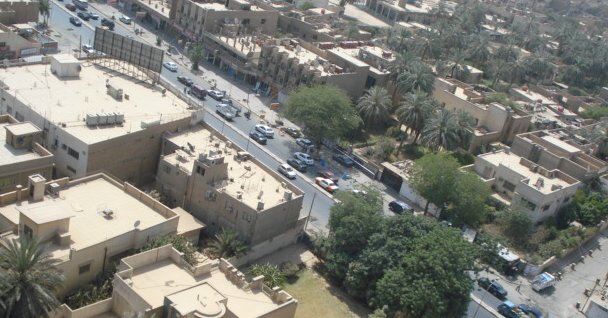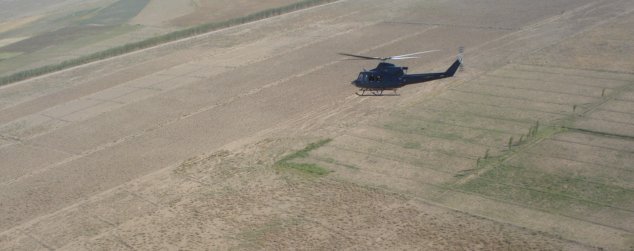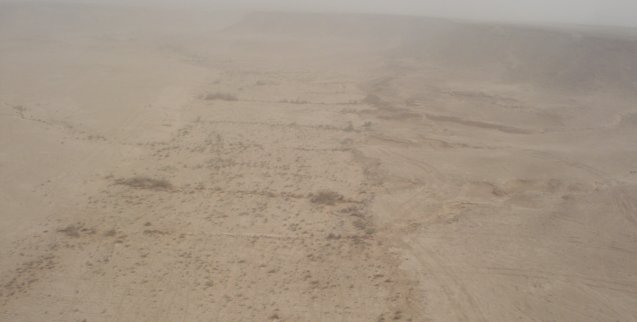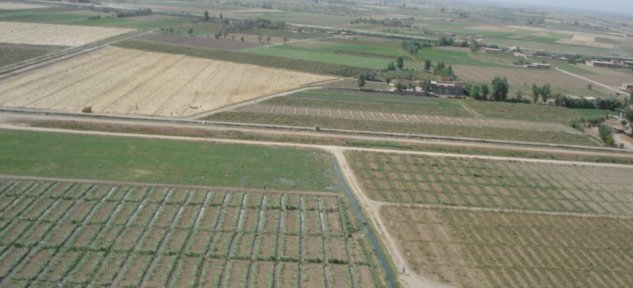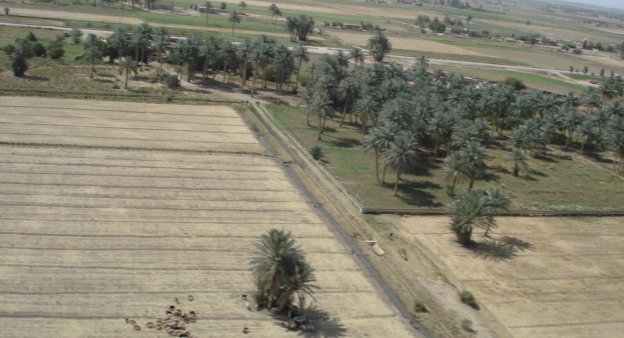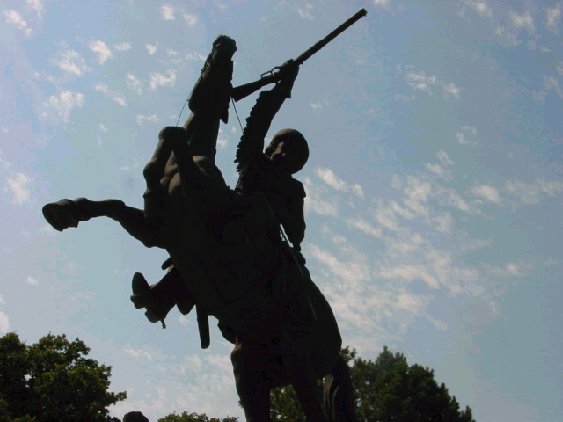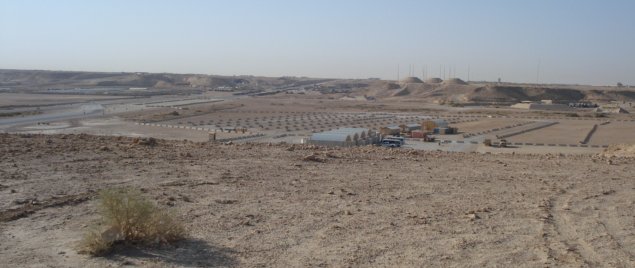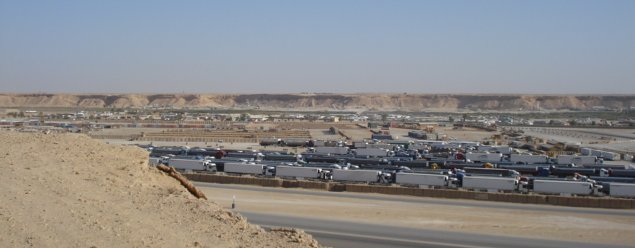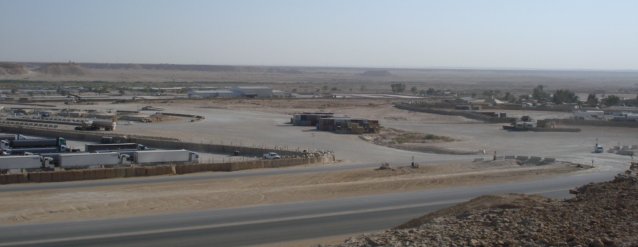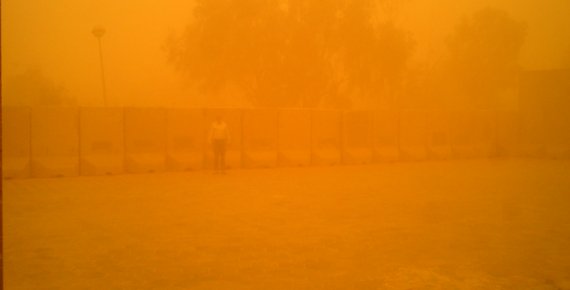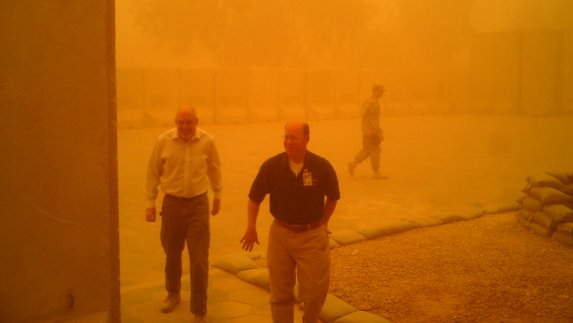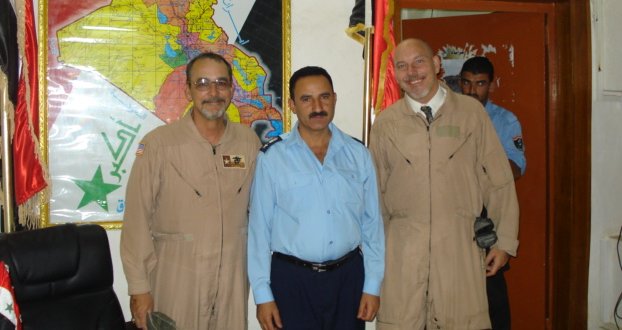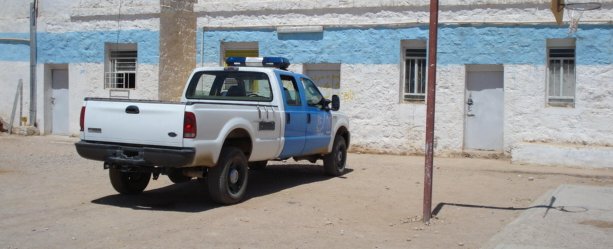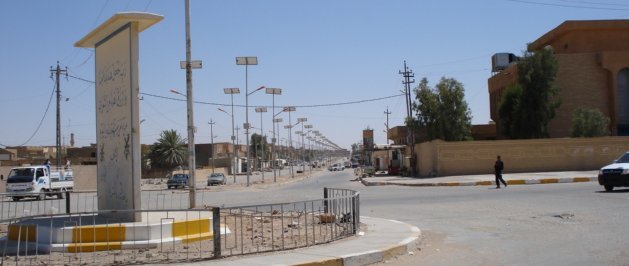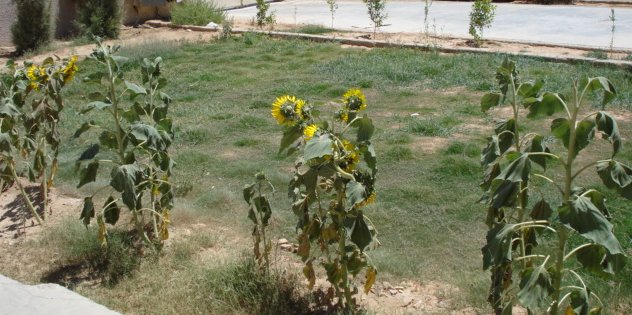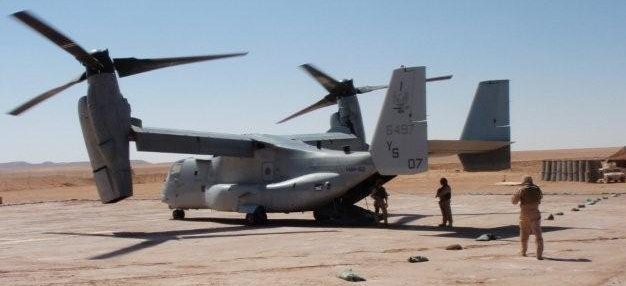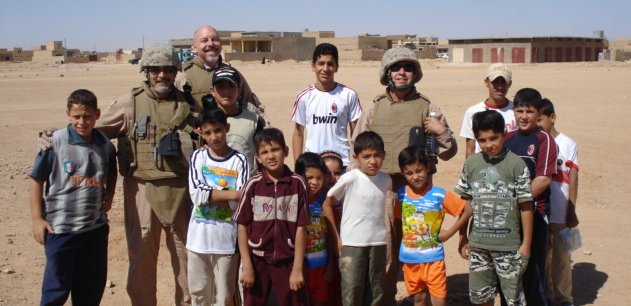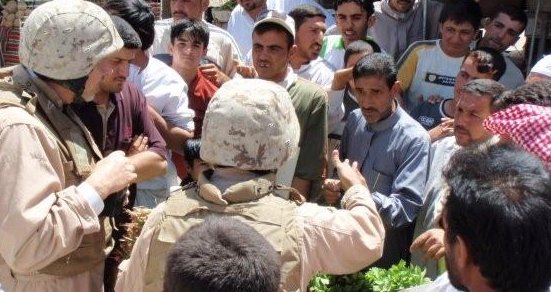I found the team leader conference in Baghdad very interesting and am trying to take some inspiration from it for my remaining time in Iraq. I was especially attracted to what General Petraeus said about the big idea and how working toward them attracts talent as people want to accomplish these sorts of goals.
Below is a “gas station” in Hadithah. Not much to look at, but there was no fuel to buy not long ago.

It is easy to get discouraged around here if we look at the things that are still lacking. But when I think about how much has been accomplished, the mood changes. Places like Hadithah, which were wastelands of rubble less than a year ago, are now enjoying growing prosperity and stability, with full markets and lots of economic activity. Our “good news story” is part of that, but only ONE part. The Anbari people are resourceful and resilient. They are going to make it and we can take great satisfaction that we helped.
We are beginning to notice the effects of more Iraqi government money funding projects in the cities of Western Al Anbar. Projects are being built without our involvement. For example, the Al Faraby Primary School in Hadithah was an ITAO project. When USACE went to do site planning they found a GOI project already in full swing. Similarly I recently visited a youth Center in Rutbah. CA was planning to renovate it and the ePRT was supplying some soccer field improvements. I recently learned that our help was no longer needed as GOI was going to fund and work the project with a big budget.
Below is Hit near the City Hall
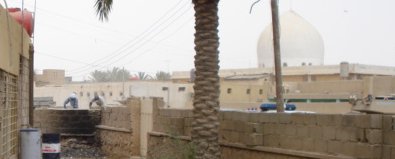
The effects are still uneven but unmistakable and they are bringing a subtle change in attitude. Local leaders are coming to understand that their own government, not coalition forces, is where they should look for resources. Effecting this change in attitude has been one of our key goals, but I am not sure how much credit we can take for it happening, sort of like the rooster taking credit for the sunrise. Certainly equally important are the fantastic oil revenues that the Iraqi government is earning as well as the perception among observant people that the U.S. Congress and the American people are less enthusiastic about continuing to push American money into a country that can well afford its own development.
Below is irrigation system near Rawah

I was a little concerned to hear that the elections may be postponed. We hear from contacts that the people of Western Al Anbar are anxious to have their voices heard. They learned their lesson from the foolishness of their earlier election boycott and now want more representative politicians in power throughout the area. I am afraid that frustration will build as elections are delayed and people suspect that incumbent politicians are abetting in the delay to protect their own careers and prolong their tenure in their jobs.
All tolled, I find many more reasons for hope than for despair. Iraq still has a very long and steep road to travel, but it is increasingly prepared to make the journey successfully.
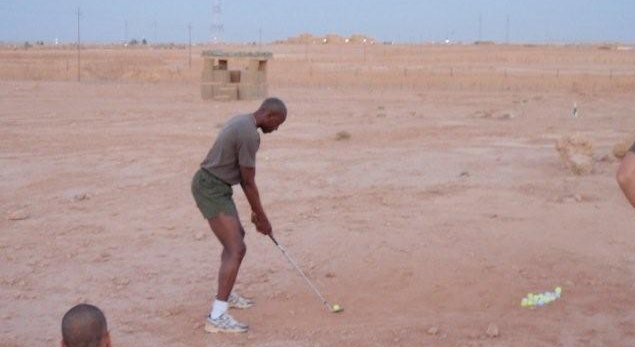
Above is a Marine playing golf during free time. You take what you can.


